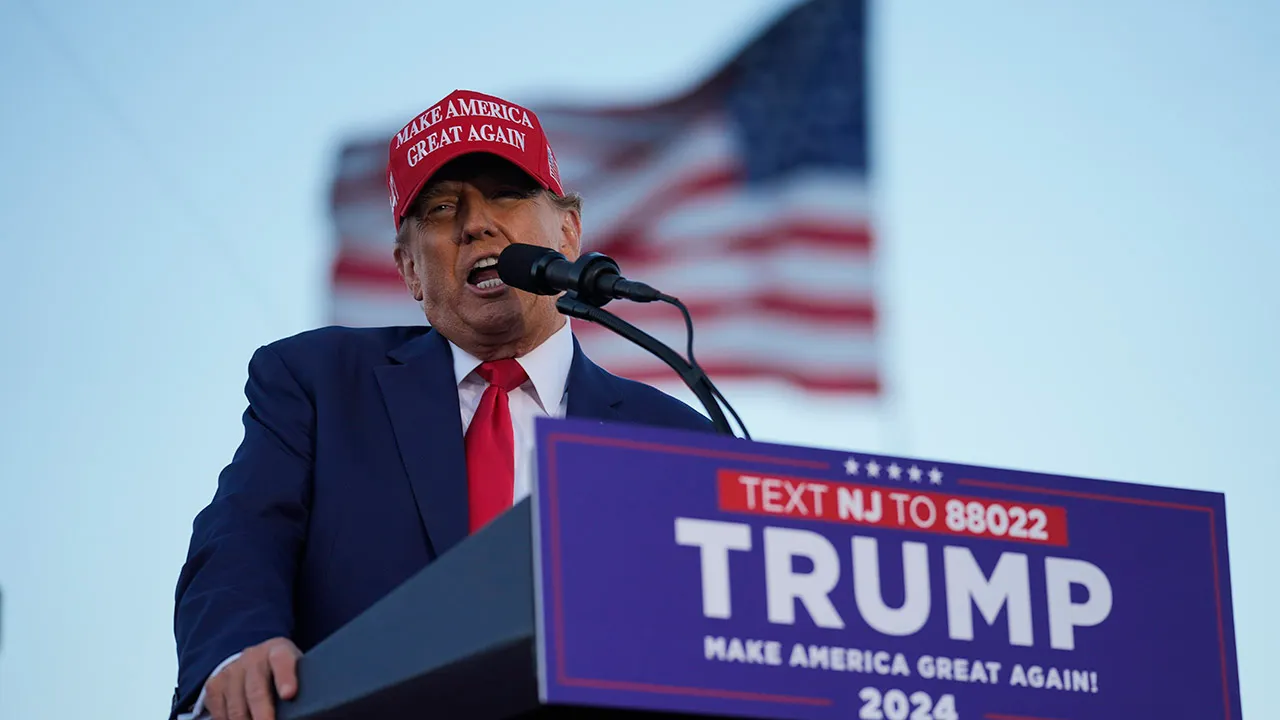CHENGDU, China (AP) — In 2018, nan censors who oversee Chinese media issued a directive to nan nation’s intermezo industry: Don’t characteristic artists pinch tattoos and those who correspond hip-hop aliases immoderate different subculture.
Right aft that well-known rapper GAI missed a gig connected a celebrated singing title contempt a successful first appearance. Speculation went wild: Fans worried that this was nan extremity for hip-hop successful China. Some media branded it a ban.
The genre had conscionable knowledgeable a banner year, pinch a deed competition-format TV show minting caller stars and introducing them to a state of 1.4 cardinal people. Rappers accustomed to operating connected small money and performing successful mini bars became family names. The announcement from censors came astatine nan highest of that frenzy. A soundlessness descended, and for months nary rappers appeared connected nan dozens of assortment shows and singing competitions connected Chinese TV.
But by nan extremity of that year, everything was backmost successful afloat swing. “Hip-hop was excessively popular,” says Nathanel Amar, a interrogator of Chinese popular civilization astatine nan French Centre for Research connected Contemporary China. “They couldn’t censor nan full genre.”
What had looked for illustration nan extremity for Chinese hip-hop was conscionable nan beginning.
ROOTS IN THE WESTERN CITY OF CHENGDU
Since then, hip-hop’s explosive growth successful China has only continued. It has done truthful by carving retired a abstraction for itself while staying clear of nan government’s reddish lines, balancing genuine imaginative look pinch thing palatable successful a country pinch powerful censors.
Today, musicians opportunity they’re looking guardant to an arriving aureate age.
Much of nan power tin beryllium recovered successful Chengdu, a metropolis successful China’s southwestern Sichuan region. Some of nan biggest acts successful China coming hail from Sichuan; Wang Yitai, Higher Brothers and Vava are conscionable a fewer of nan names that person made Chinese rap mainstream, performing successful a operation of Mandarin and Sichuan dialects. While hip-hop successful Chengdu started retired pinch nan very dense sounds of trap, its mainstreaming has meant artists person broadened retired to lighter sounds, from R&B to nan trending afrobeat rhythms popularized by Beyonce.
Although Chinese rap has been operating underground for decades successful cities for illustration Beijing, it is nan Sichuan region — known internationally for its spicy cuisine, its panda reserve and its position arsenic nan birthplace of nan precocious leader Deng Xiaoping — that has travel to dominate.
“There’s a batch of rhymes successful rap. And from a young age, we were exposed to connection pinch a batch of rhymes. And I consciousness for illustration we’re its origin,” says Mumu Xiang, who is from Sichuan and attended a rap performance precocious held successful nan city.
The dialect lends itself to rap because it’s softer than Mandarin Chinese and location are a batch much rhymes, says 25-year-old rapper Kidway, from a municipality conscionable extracurricular Chengdu. “Take nan connection ‘gang’ successful English. In Sichuanese, there’s a batch of rhymes for that connection ‘fang, sang, zhuang,’ nan rhymes are already there,” he says.
Chengdu is besides welcoming to outsiders, says Haysen Cheng, a 24-year-old rapper who moved to nan metropolis from Hong Kong successful 2021 to activity connected his euphony astatine nan invitation of Harikiri, a British shaper who has helped style nan segment and worked pinch Chengdu’s biggest acts.
Part of nan city’s hip-hop lore centers astir a corporate called Chengdu Rap House aliases CDC, founded by a rapper called Boss X, whose fans affectionately telephone him “Xie laober” successful nan Sichuan dialect. The metropolis has embraced rap, arsenic its originators for illustration Boss X went from making euphony successful a run-down flat successful an aged residential organization to performing successful a stadium for thousands. At Boss X’s capacity successful March, fans sang on and shouted successful Sichuanese. Even pinch a prohibition connected nan assemblage opinionated up, modular astatine each stadium performances successful China, nan power was infectious.
“When I came to mainland China, they showed maine much emotion successful for illustration 3 aliases 4 months than I ever received successful Hong Kong,” Cheng says. He sewage to collaborate pinch nan Higher Brothers, 1 of nan fewer Chinese rap groups who besides person world recognition. “The group present really want each different to succeed.”
The value of going mainstream, though, intends nan underground segment has evaporated. Chengdu was erstwhile known for its underground rap battles. Those nary longer happen, arsenic freestyling usually involves profanity and different contented nan authorities deem unacceptable. The past clip location was a rap conflict successful nan city, rappers say, authorities quickly showed up and unopen it down. These days it’s each digital, pinch group uploading short clips of their euphony to Douyin, TikTok’s Chinese version, to get noticed.
Kidway says he learned to rap from going to these battles and competing against different rappers his age. He erstwhile worked astatine a renewal institution but ditched it to prosecute rap afloat time.
But moreover though nan rap battles are gone, nan section has much rappers than ever. That’s a bully thing. “The much players location are,” he says, “the much absorbing it is.”
A TV SHOW THAT GAVE BIRTH TO A GENRE
Rarely tin a azygous taste merchandise beryllium said to person originated a full genre of music. But nan talent competition/reality TV show “The Rap of China” has played an outsized domiciled successful building China’s rap industry.
The first season, broadcast connected IQiyi, a web streaming platform, brought rap and hip-hop civilization to households crossed nan country. The first season’s 12 episodes drew 2.5 cardinal views online, according to Chinese media reports.
In nan first season, nan show relied connected its judges’ prima powerfulness to tie successful an assemblage — namely Kris Wu, a Chinese Canadian vocalist and erstwhile personnel of nan deed K-pop group EXO. At that constituent successful time, Wu was astatine nan tallness of his fame, and his comments arsenic a judge that play moreover became net memes. “Do you person freestyle?” he asked a contestant, dormant serious, connected Episode One — a infinitesimal that went connected to unrecorded successful net infamy because group doubted Wu’s rap credentials.
Two winners emerged from nan first season: GAI and PG One. Shortly aft their win, nan net was awash pinch rumors astir nan less-than-perfect doings of PG One’s individual life. The Communist Youth League besides criticized 1 of his aged songs for contented that appeared to beryllium astir utilizing cocaine, very overmuch violating 1 of nan censor’s reddish lines.
Then came nan 2018 gathering wherever censors reminded TV channels of who could not look connected their programs, namely anyone who represented hip-hop. PG One was uncovering that immoderate attempts to merchandise caller euphony were quickly taken down by platforms. The platform, IQiyi, moreover took down nan full first play for a while.
But by precocious summertime 2018, fans were excited to perceive that they could expect a 2nd play of “The Rap of China,” though location was a rebrand. The sanction successful English stayed nan same, but successful Chinese it signaled a caller direction. The show’s sanction changed from “China Has Hip-Hop” to “China Has ‘Shuochang,’” a word that besides refers to accepted forms of storytelling.
Regulators had fixed nan go-ahead for hip-hop to proceed its growth, but they had to travel nan lines group by nan authorities censors. Hip-hop was now shuochang and a awesome of younker culture; it had to enactment distant from mentions of narcotics and sex. Otherwise, though, it could proceed.
“It was a occurrence for nan Chinese regulators. … They really succeeded successful coopting nan hip-hop artists,” Amar says. “It’s for illustration a contract: If you want to beryllium popular, if you want to beryllium connected TV shows, you person to respect nan reddish line.”
FINDING A CHINESE VOICE
With tight censorship connected nan intermezo manufacture and a prohibition connected mentions of narcotics and activity successful lyrics, artists person reacted successful 2 ways. Either they wholeheartedly clasp nan displays of patriotism and nationalism, aliases they debar nan topics.
Some, for illustration GAI, person afloat taken connected nan government’s mantle successful nan mainstreaming of hip-hop. He won “The Rap of China” pinch a opus called “Not Friendly” successful which, successful classical hip-hop fashion, he dissed different rappers that he didn’t name. “I’m not friendly. I tin break your pen astatine immoderate moment. Tear down your flashy words. … My enemies you amended believe for you to person a bully end.”
Just a fewer years later, Gai is singing astir China’s glorious history connected nan CCTV’s Spring Festival New Year’s Gala broadcast, a tightly scripted intermezo show pinch drama sketches, songs and creation performances that is watched by families while celebrating Chinese New Year.
“Five 1000 years of history flows past for illustration quicksand. I’m proud to beryllium calved successful Cathay,” he sings, wearing a Qing Dynasty-inspired Tang jacket.
The reddish lines person besides pushed artists to beryllium much creative. For Chinese rap to thrive, artists person to find original voices, they say. 32-year-old rapper Fulai describes his ain euphony arsenic chill rap aliases “bedroom music” — not successful nan euphemistic sense, but nan type of euphony you perceive to arsenic you laic successful bed. His upcoming album, he says, is astir mean things for illustration fights pinch his woman and washing dishes.
Still, Fulai says he talks astir activity a batch successful his lyrics. Chinese is simply a connection pinch countless sayings and a beardown poetic tradition: “There’s thing you can’t touch,” he says. “You conscionable person to beryllium clever astir it.”
Developing a genuine Chinese marque of rap remains a activity successful progress. Hip-hop sewage its commencement from New York’s boroughs of Brooklyn and nan Bronx, wherever rappers made euphony retired of their reliable circumstances, from shootouts to crime to forbidden supplier dealing. In China, nan situation is astir uncovering what fits its context. Shootouts are uncommon successful a state wherever guns are banned, and nan penalties for supplier usage are high.
The rap crews successful Chongqing, different mega-city successful nan Sichuan region, had a sensation of pack civilization reflected successful their euphony arsenic artists wrote astir fights and vows of brotherhood. But astir of today’s biggest acts don’t rap astir topics for illustration knifing personification aliases supplier usage anymore.
Wang Yitai, who was a personnel of Chengdu’s rap corporate CDC, is now 1 of nan astir celebrated rappers successful China. His style has infused mainstream popular sounds.
“We’re each trying difficult to create songs that not only sound good, but besides topics that fresh for China,” Wang says. “I deliberation hip-hop’s tone will ever beryllium astir original creation and will ever beryllium astir your ain story.”

 2 weeks ago
2 weeks ago









